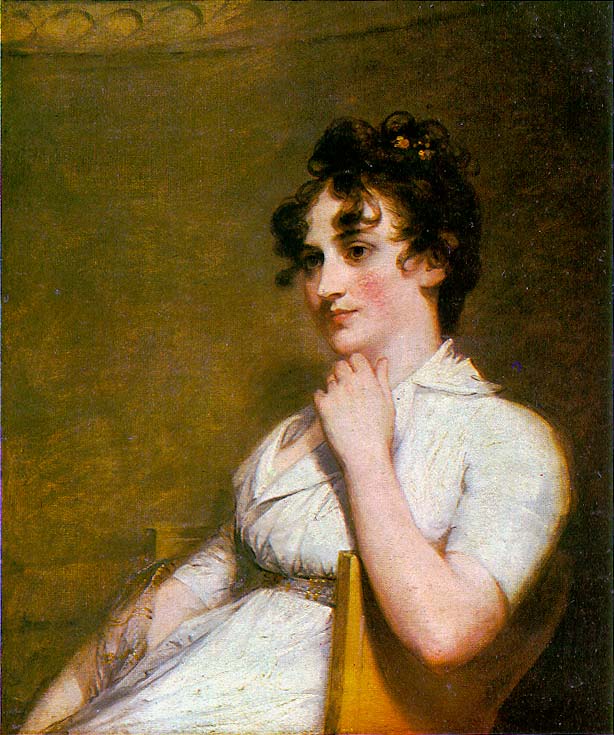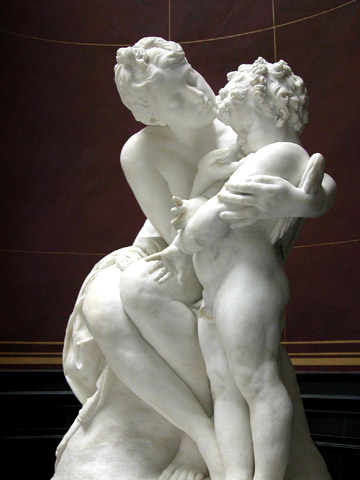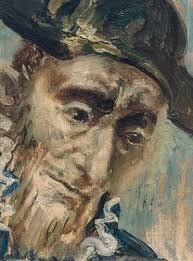
December 3

1347 Pope Clemens VI declares the Roman tribunal Coke di Rienzo as heretics.
1368 Birth: Charles VI (the Well-Beloved), king of France (1380-1422).
1463 Death: Louis Chalon, prince of Orange.
1468 Lorenzo the Magnificent and his brother Giuliano succeed their father, Piero de Medici, as rulers of Florence, Italy. (Bradley)
1469 Death: Piero de' Medici, ruler of Florence, at about 53.
1483 Birth: Nicolaus von Amsdorf, German reformation theologist.
1491 Death: Thomas Basin, French historian, bishop of Lisieux.
1533 Death: Vasili III, great prince of Moscow (1505-33) at 54.
1557 The first Covenant of Scottish Protestants forms.
1586 Sir Thomas Herriot introduces potatoes to England, from Colombia. (Bradley)
1621 Galileo perfects his telescope.

1676 Battle at Lund: Sweden defeats Denen.

1678 Edmund Halley receives a Master of Arts degree from Queen's College, Oxford. (Bradley)
1684 Birth: Ludvig Baron Holberg, a founder of Danish and Norwegian literature.
1685 Charles II bars Jews from settling in Stockholm, Sweden. (Bradley)
1694 The English parliamentary election is set for every 3 years.
1699 Baron Jacob Hop is appointed treasurer-General of the Hague.
1753 Birth: Samuel Crompton, English inventor; will invent the mule-jenny spinning machine.

1775 The first official US flag raising is enacted, aboard naval vessel Alfred.


1800 War of the Second Coalition: 60,000 French under Moreau defeat 70,000 Austrians under Archduke John at the Battle of Hohenlinden in upper Bavaria. (Bradley)
1806 Birth: Henry Alexander Wise, Brigadier-General (Confederate Army).
1809 Birth: Thomas Alfred Davies, Bvt Major General (Union volunteers).
1810 Britain seizes the islands of Reunion and Mauritius from French control.

1822 Birth: Charles Adam Heckman, Brigadier-General (Union volunteers).
1826 Birth: George Brinton McClellan, Major General; Union general who will defeat Robert E. Lee at Antietam and run against Abraham Lincoln for president.


1829 Birth: Green Berry Raum, Brigadier-General (Union volunteers).
1833 Birth: Carlos Juan Finlay, Cuban epidemiologist.
1834 The first US dental society is organized, in New York.
1835 The first US mutual fire insurance company issues its first policy (Rhode Island).
1838 Birth: Cleveland Abbe, US meteorologist, (Father of the Weather Bureau).
1838 Birth: Octavia Hill, British reformer, leader of open-space movement.
1842 Birth: Ellen Henrietta Richards, US chemist; the American Home Economics Association's first president.
1847 Frederick Douglass and Martin R. Delaney establish the North Star, an antislavery paper.


1862 US Civil War: Confederate raiders attack a Federal forage train on the Hardin Pike near Nashville, Tennessee.
1863 US Civil War: Confederate General James Longstreet abandons his siege at Knoxville, Tennessee, and moves his army east and north toward Greeneville. This withdrawal marks the end of the Fall Campaign in Tennessee.
1864 Birth: Herman Heijermans Jr., Dutch writer; Kamertjeszonde, Diamond City.
1864 US Civil War: Major General William Tecumseh Sherman meets with slight resistance from Confederate troops at Thomas Station on his march to the sea.
1868 Reconstruction: The trial of Jefferson Davis starts; with the first blacks on a US trial jury.
1875 Birth: Bernhard Lichtenberg, German clergyman, antifascist.
1878 Settlers arrive at Petach Tikvah, Israel.

1883 The 48th US Congress (1883-85) convenes.

1886 Birth: Karl Manne Georg Siegbahn, Swedish physicist (röntgen spectroscope, Nobel 1924).
1893 Ndebeles destroys Rhodesia.
1893 Death: Allan Wilson, British-Rhodesian major, in battle.
1894 Death: Robert Louis Stevenson, English writer (Dr Jekyll & Mr Hyde), from a cerebral hemorrhage at 45.
1895 Birth: Anna Freud, Austrian-English psychoanalyst, daughter of Sigmund Freud.
1896 Birth: John Urzidil, Austria-US writer; Die erbeuteten Frauen.
1897 Birth: Kate O'Brien, Irish writer (Without My Cloak).
1900 Birth: Lester Matthews, in Nottingham, England, author; Sir Dennis-Adventures of Fu Manchu.
1900 Birth: Richard Kuhn, in Austria, biochemist; will work with vitamins (Nobel 1938).

1906 The US Supreme Court orders Industrial Workers of the World (IWW) leaders extradited to Idaho for trial in the Steunenberg murder case.
1908 Birth: Nigel M. Balchin [Mark Spade], English author (Business for Pleasure).
1910 The neon lamp, developed by French physicist Georges Claude, is displayed for the first time at the Paris Motor Show.
1910 Death: Mary Baker Eddy, founder of the Christian Science Monitor.
1912 First Balkan War: An armistice is signed by Turkey, Bulgaria, Greece, Serbia and Montenegro, temporarily ending the conflict.
1914 WW1: Marshal Putnik's Serbian troops counterattack after receiving much needed ammunition from France.
1915 The United States expels German attaches on spy charges.
1916 WW1: French commander Joseph Joffre is dismissed after his failure at the Somme. General Robert Nivelle becomes the new French commander in chief.
1916 WW1: After convalescing at the Red Cross hospital in Beelitz since October 9, Lance Corporal Adolf Hitler is transferred to 4 Company, 1st Replacement Battalion, 16 Bavarian Infantry Regiment in Munich. (Maser)

1917 WW1: A truce is signed between the new Russian Bolshevik government and Germany, ending hostilities on the Eastern Front, and permanently erasing Russia from the Allied ranks.


1923 The first Congressional open session to be broadcast via radio, is made from Washington DC.
1924 Birth: John Backus, inventor; FORTRAN computer language.

1926 Weimar: British reports claim that German soldiers are being trained in the Soviet Union, contrary to the terms of the Treaty of Versailles.
1926 Agatha Christie disappears this day and is found 11 days later in Yorkshire, with no idea as to how she got there.
1929 US President Hoover in his annual address to Congress declares that confidence in America's business has been reestablished. The events of the following decade will do nothing to justify this statement. (Schlesinger I)
1930 Air-borne chemicals combine with fog to kill 60 in Meuse Valley, Belgium.
1930 Otto Ender forms an Austrian government.
1931 The Statute of Westminster is passed, under which British dominions gain complete legislative independence.
1933 Birth: Paul Crutzen, Dutch chemist.
1934 Italian colonial Tripoli and Cyrenaica are annexed to Libya.
1934 France and Germany sign a one-year agreement prohibiting discrimination against any resident of the Saar region for racial, linguistic or religious reasons.
1936 The British Royal Family cancels all engagements as news breaks of Edward VIII's determination to marry Wallis Simpson.

1938 Holocaust: A new decree orders that all Jewish enterprises and shops are now subject to compulsory "Aryanization," the forced disposal of all Jewish stores, businesses, and financial holdings. (Goebbels)
1938 Holocaust: German Jews are forced to give up their driver's licenses and vehicle registration papers. They are also forced to sell their securities and jewelry. (Persecution)
1940 WW2: Italian defense lines crumble in Albania.


1943 WW2: Units from X Corps reach the top of Monte Camino, and II Corps captures Monte Maggiore. The Battle of Monte Cassino, Italy begins.
1943 WW2: In Warsaw, the SS and Gestapo publicly execute a hundred tramway workers for an act of sabotage.


1944 WW2: The US 5th Armour division occupies Brandenburg, Hürtgenwald.
1944 WW2: A civil war breaks out in Athens, Greece, between the government backed by Britain and the National Liberation Front (EAM). The British order EAM to disarm.
1946 The US government asks the UN to order dictator Franco out of Spain.

1948 The Chinese refugee ship Kiangya explodes in the E. China Sea, killing 1,100.
1950 Korea: The Chinese close in on Pyongyang as UN forces withdraw southward.
1952 Britian's first air-sea rescue helicopter picks up four Danish sailors off Yarmouth.
1952 The first TV broadcast in Hawaii is made.
1952 Marcos Perez Jiménez is elected President of Venezuela.
1953 President Eisenhower criticizes Senator McCarthy for declaring that communists are in the Republican party.
1956 England and France pull their troops out of Egypt.
1957 Death: Frank E. Gannett, newspaper publisher, at 81.
1958 The Indonesian parliament accepts the nationalization of Dutch businesses.
1959 The State of emergency on Cyprus ends.
1962 Today sees the start of the four-day smog cloud which brings London to a standstill.
1964 Death: Ernst Ginsberg, writer.
1964 Police arrest 800 sit-in students at University of California at Berkeley.
1965 The USSR launches Luna 8.
1965 The Nam: The National Council of Churches asks the United States to halt the massive bombings in North Vietnam.
1967 Ex-President Sukarno is put under house arrest in Indonesia.
1967 Death: Annette Kolb, writer, at 92.
1971 President Richard Nixon commutes Jimmy Hoffa's jail term.
1971 The Pakistani air force attacks Indian airfields and Indian Prime Minister Indira Gandhi declares a state of emergency. (Bradley)
1973 Pioneer 10 passes Jupiter, the first flyby of an outer planet.
1976 Dr. Patrick J. Hillery is elected President of Iraq.
1976 A giant 40 ft inflatable pig is seen floating above London after breaking free from it's moorings while been photographed for Pink Floyd's Animals album cover. The CAA issues a warning to all pilots that a flying pig is on the run. (Bradley)
1977 The US State Department proposes the admission of 10,000 more Vietnamese refugees to the United States.
1979 Iran adopts a new constitution.
1980 A New York Federal jury finds Representatives Thompson D-New Jersey and Murphy, D-New York, guilty.
1984 The oldest groom ever, Harry Stevens age 103, weds Thelma Lucas, age 83, in Wisconsin.

1984 Died: Virginia Lacy Jones, US librarian, presidential advisor, at 72.

1989 The leader of East Germany's orthodox Communist Party, Egon Krenz, and the entire party hierarchy vote themselves out of office. (Bradley)

1991 White House Chief of Staff John Sununu resigns.
1992 The UN Security Council votes unanimously for a US led force to enter Somalia.
1993 Angola's government and its rebel foes agree to a cease-fire in their 18-year war.
1994 Death: Giorgi Chanturia, President of Georgia, assassinated.
1995 Former South Korean President Chun Doo Hwan is arrested over charges of military rebellion stemming from a 1979 coup and a later army massacre.
1996 Death: Former Afghan Communist leader Babrak Karmal of liver cancer in Moscow. Karmal personified the Kremlin's ill-fated nine-year intervention in Afghanistan.
1996 Death: George Duby, historian, at 77.

1997 Death: Marian Kratochwil, artist, at 91.

2001 In a rare live televised address Israeli PM Sharon declares, "Those who rise up to kill us are responsible for their own destruction." Sharon describes PLO Chairman Yasser Arafat as "the biggest obstacle to peace in the Middle East."
2001 US White House spokesman Ari Fleischer opines, "Obviously Israel has the right to defend herself."
2001 Arafat declares a state of emergency, and rounds up 150 militants connected to Hamas and Islamic Jihad.


2001 Rival Afghan leaders edge toward a UN-brokered deal to form a post-Taliban government. After seven days of talks in Bonn, the group is down to selecting the 29 names for a transitional cabinet.
2001

2002

2002

2003

2004

2004

2004

Visit:




 Visit:
Visit:

Click Here to email the History: One Day At a Time webmaster.